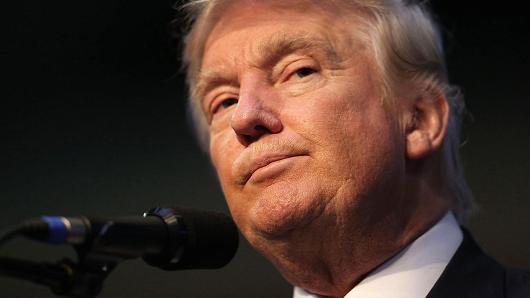
President Donald Trump has been named in more than 50 lawsuits since taking the oath of office, a staggering number compared to the first days of past administrations.
Since being sworn in Jan. 20, Trump has been named in 52 federal cases in 17 different states, according to the Administrative Office of the United States Courts. Comparatively, Barack Obama was named in three and George W. Bush and Bill Clinton were each named in four cases between Jan. 20 and Feb. 1.
While the president is often named in court cases against the federal government, the Trump administration is facing a wave of legal challenges for its two controversial executive orders that focus on immigrants from Muslim-majority nations or immigrants who entered the U.S. illegally. They also will have to battle a lawsuit over Trump’s possible conflicts related to his business holdings.
More from NBC News:
US prepares new Iran sanctions for testing ballistic missile
Doctors make the case for Obamacare or something like it
Trump’s first jobs report shows solid gains, weaker wages
LAWSUITS AGAINST US ENTRY RESTRICTIONS
Civil rights and Muslim advocacy organizations and groups of immigrants filed a wave of legal challenges to Trump’s order on Jan. 27 that saw a number of Muslim immigrants detained at airports across the country and around the world and sparked mass protests nationwide. Attorneys general from New York, Massachusetts and Virginia have joined suits opposing the order. Washington state filed its own suit, which was joined by Minnesota on Thursday.
Each is challenging the order on the grounds that it violates an individual’s Constitutional right to religious freedom. The executive order temporarily bars entry by immigrants from seven nations — Iran, Iraq, Libya, Somalia, Sudan, Syria and Yemen — that are more than 90 percent Muslim. It also bans all refugees for 120 days and Syrian refugees indefinitely. The order also states that the U.S. would provide preferential treatment to religious minorities facing religious persecution in the seven countries.
The Trump administration has pushed back on the claim that the order is a “Muslim ban.”
source”cnbc”



